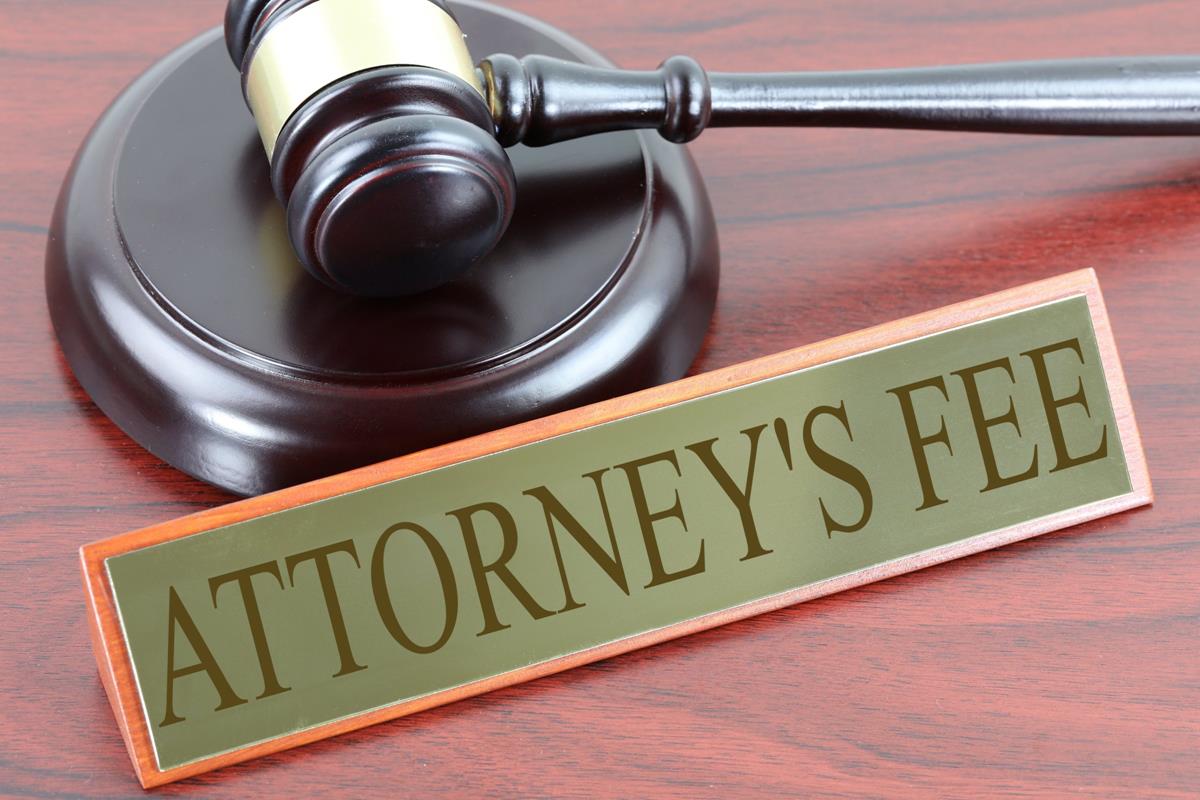Bills pile up, calls from collectors keep coming, and you’re unsure which step will alleviate the stress. Among the types of bankruptcies in Texas, Chapter 7 often offers a clear path to wipe out unsecured debt, but people quickly ask about cost and eligibility. Wondering how much a lawyer charges for Chapter 7 In Texas? This article breaks down attorney fees, court filing fees, trustee costs, flat fee and hourly rate options, payment plans, means test basics, and how to spot hidden costs so you can make a confident choice.
Warren & Migliaccio L.L.P’s Texas bankruptcy lawyers can explain attorney charges, compare fee structures, and offer a free consultation to help you match costs to your situation and move forward with clarity.
Typical Attorney Fees for Chapter 7 in Texas

Most Texas bankruptcy lawyers charge a flat fee for a consumer Chapter 7 case. Expect a typical range of about $1,000 to $2,500 for straightforward, no-asset cases. Urban markets such as Houston, Dallas, Austin, or San Antonio push fees toward the upper end.
Complex situations involving real estate, business assets, contested exemptions, or adversary proceedings can result in fees of $3,000 to $4,000 or more.
What the Flat Fee Usually Covers: The Basics You Pay For
A standard flat fee generally includes:
- The initial consultation
- Preparing and filing the petition and schedules
- Creditor notices
- Representation at the 341 meeting of creditors
Your lawyer will also:
- Advise on the means test
- Claim exemptions under Texas law
- Coordinate required credit counseling and debtor education
- Handle routine communications with the trustee and creditors
Extra Costs and Court Fees: What Shows Up Beyond the Attorney Bill
Expect separate costs that the attorney’s fee does not absorb. The United States bankruptcy filing fee for Chapter 7 is about $338 at present. Credit counseling and debtor education courses often cost $10 to $50 combined.
The attorney may charge extra for those services if your case triggers:
- Adversary proceedings
- Reaffirmation agreements
- Lien challenges
- Valuation fights
Document retrieval, title runs, process service, and copies can add small fees.
Factors That Drive the Fee Higher or Lower: Why Prices Vary
Case complexity changes price more than geography. Owning a home in Texas requires extra effort due to the complexities of homestead law and exemption planning. Business assets, recent large transfers, tax issues, multiple creditors, or the need to fight a creditor at the 341 meeting add hours.
Experience matters. A bankruptcy specialist with a steady Chapter 7 practice will usually charge more than a generalist, but often finishes the work faster and handles objections more efficiently.
How Attorneys Collect Fees: Timing and Payment Options
Some attorneys require full payment before filing the petition. Others accept a retainer and allow installment payments, collecting the balance before the 341 meeting. Federal rules prohibit paying a bankruptcy attorney from future earnings after filing, so attorneys want the fee sorted out before key deadlines.
Ask about payment plans, credit card acceptance, and whether the firm files only after the retainer clears.
What Is Not Included in a Flat Fee: Watch for Extra Work
Make sure you know what the flat fee excludes.
Common exclusions are:
- Adversary suits
- Preference litigation
- Contested lien claims
- Costly document retrieval
- Tax negotiation
- Litigation with trustees or creditors
If the firm charges hourly for added work, get an hourly rate and an estimate of hours so you can compare total expected costs.
How to Shop for a Chapter 7 Lawyer in Texas: Smart Questions to Ask
When you call, ask these direct questions:
- What is your flat fee for a no-asset Chapter 7?
- What does that fee include, and what triggers extra charges?
- Do you accept payment plans, and when must the balance be paid?
- How many Chapter 7 cases do you file per year, and who will handle my file?
- What are the likely additional costs in my situation?
Request a written fee agreement before you pay.
Low Cost and Free Options: Legal Aid, Pro Bono, and Self-Help
If cost is the main barrier, contact legal aid programs, local bar pro bono panels, or nonprofit credit counseling agencies that refer clients. Some solo practitioners offer reduced fees for low-income clients or sliding scale rates.
Filing pro se is possible but risky. Court forms and self-help materials exist, but a single error can cause dismissal or loss of protections.
Texas Specifics That Affect Fees: Homestead Rules and Exemptions
Texas’s exemption law is claimant-friendly but tricky. Properly claiming a homestead exemption or handling multiple properties consumes time.
If your case involves real property, expect the attorney to charge more to analyze:
- Deeds
- Exemptions
- Potential lien avoidance
That extra work reduces the risk of losing property, which many clients find worth the added cost.
Timing and Typical Timeline: How Long Before You Are Finished
A simple Chapter 7 usually closes in three to five months after filing. Your attorney’s workload before filing includes document gathering and means test prep. If disputes arise, the timeline extends, and additional fees may apply. Ask the attorney for a timeline tied to the fee structure so you know when major steps will occur.
Choosing Value Over Price: What Good Representation Looks Like
Cheap does not always mean savings. A low-fee lawyer who misses exemptions or files incomplete schedules can expose you to trustee motions and extra costs. A seasoned bankruptcy attorney will prevent:
- Common mistakes
- Respond to trustee questions
- Reduce the chance of prolonged litigation
Ask for references and how the attorney handles problems when they appear.
Related Reading
• Business Bankruptcy In Texas
• Filing Bankruptcy Chapter 7 in Texas
Additional Costs Beyond Attorney Fees

Court Filing Fee: What You Pay To Open Your Chapter 7 Case
The U.S. bankruptcy court charges a $338 filing fee to start a Chapter 7 case in Texas. That fee is separate from your attorney’s fee and must be paid to process your petition. If your household income falls below 150 percent of the federal poverty guideline, you can apply for a fee waiver.
If you do not qualify for a waiver, the court often allows up to four installments so you do not have to pay the full amount at once. Ask your attorney to confirm whether you qualify for a waiver or an installment plan.
Credit And Debtor Education: Two Required Courses And Typical Costs
Federal law requires two courses:
- Pre-filing credit counseling
- Post-filing debtor education course
You must complete the pre-filing counseling before you file and submit that certificate with your petition; you must finish the debtor education course before the court will issue a discharge.
Providers approved by the U.S. Courts usually charge about $35 to $50 per course, though some offer reduced-cost or no-cost options for low-income filers. Your lawyer can point you to approved vendors and help you file the completion certificates.
Other Possible Costs: Minor Extras That Add Up If Your Case Gets Complex
Expect small items, such as a current credit report pulled by your attorney, which typically runs $15 to $50. Suppose your case needs extra motions or special filings, for example, a motion to avoid a lien, a motion to reopen, or a reaffirmation agreement.
In that case, the court and attorney may charge additional fees if a creditor files an adversary proceeding to challenge a discharge, which turns into a separate lawsuit with its own filing fee and higher legal costs.
These extra items can be modest or substantial depending on how contested the case becomes, so budget accordingly.
Typical Attorney Fee Context And Cost Planning
Many Chapter 7 lawyers in Texas charge a flat fee that covers the basic work of preparing and filing your petition, attending the 341 meeting of creditors, and handling routine trustee matters. Typical Chapter 7 attorney fees in Texas commonly fall in a range from about $1,000 to $3,500, with simple, uncontested cases at the low end and cases with assets or litigation at the high end.
Ask for a written fee agreement that lists what is included and what remains your responsibility, and ask whether the firm offers payment plans or accepts credit. Have your attorney itemize expected court fees, counseling costs, and potential extra costs so you can budget the total bankruptcy cost.
Questions To Ask Your Lawyer Before You Sign
- Do the quoted flat fees include the $338 court filing fee and the two counseling course fees?
- Will they pull a credit report and include that cost in the retainer?
- What events would trigger additional charges, such as an adversary proceeding or a motion to avoid a lien?
A clear, written answer will keep surprises to a minimum.
Comprehensive Support for Every Stage of Life’s Legal Challenges
Ready to protect what matters most to your family with trusted legal guidance from Warren & Migliaccio’s experienced Texas family lawyers? Whether you’re facing bankruptcy, divorce, child custody issues, estate planning needs, or debt defense challenges, our specialized team provides compassionate, results-driven representation tailored to your unique situation.
Contact us today at (888) 584-9614 to schedule a free consultation and let our dedicated legal advocates help you navigate through life’s most challenging legal matters with confidence and peace of mind.
Factors That Affect the Total Cost

What Drives The Total Cost Of A Chapter 7 In Texas
Attorney fees for Chapter 7 in Texas usually fall into a flat fee range, but the total you pay can vary a lot. Court filing fees and trustee fees add fixed costs, while attorney billing, administrative charges, and extra filings push the final price higher.
The cost of a lawyer for Chapter 7 in Texas depends on several factors, including how your case is presented on paper.
Case Complexity Increases The Time And Work
Complex financial records take longer to sort, prepare, and present to the trustee and court. High asset cases involving multiple pieces of real estate, several vehicles, or investment accounts necessitate careful exemption planning under Texas law, which requires more attorney time.
Multiple creditors, open lawsuits, or older unpaid taxes mean extra paperwork and sometimes contested hearings that raise legal fees.
Reaffirmation Agreements And Special Motions
Want to keep a car or pay off a mortgage? Reaffirmation agreements and motions to avoid liens or value collateral require:
- Drafting
- Negotiation with creditors
- Sometimes a court hearing
Each agreement or motion is additional legal work and can result in separate charges beyond the base Chapter 7 fee. Do you expect to stay current on any secured debt after filing?
Payment Structure And How It Affects The Total Out-of-Pocket
Some bankruptcy lawyers ask for full payment before they file; others let you pay by a convenient monthly plan. Payment plans spread the cost but can include administrative fees or a higher total if interest or service charges apply.
The timing of payment also matters because courts will not accept filings without the necessary fees or required attorney declarations.
Asset Case Versus No Asset Case And Trustee Involvement
In a no-asset case, there are usually no non-exempt assets for the trustee to sell, which keeps trustee interaction minimal and legal work lighter. Asset cases force the attorney to work with the trustee to protect exemptions or negotiate on:
- The estate
- Adding time
- Fees
The type of your case affects both the attorney’s fee and potential trustee fees.
Geographic Location And Local Market Rates
Attorney rates vary across Texas. Larger cities such as Houston, Dallas, and Austin tend to have higher average Chapter 7 attorney fees because overhead and demand are greater. Smaller cities and rural counties commonly show lower rates, though experience and firm size can offset location differences.
Are you comparing local lawyer fees or statewide averages?
Attorney Experience, Reputation, And Efficiency
A highly experienced bankruptcy lawyer often charges more, but that can save money if they avoid errors, shorten the process, and handle objections quickly. Less experienced attorneys may offer lower flat fees, but they may also take longer or miss strategic moves that cost you later.
Look at the track record, client reviews, and whether the attorney handles contested matters in bankruptcy court.
Administrative And Case-Specific Add-Ons
Expect additional costs for credit counseling and debtor education certificates, document copying, court-ordered notices, and certified mail. If creditors file adversary proceedings or you need litigation to stop garnishments, expect higher hourly work and separate billing.
Small items like bankruptcy court filing fees are fixed; litigation and contested matters are variable.
Questions To Ask A Prospective Chapter 7 Attorney
- How much is your flat fee, and what exactly does it cover?
- Do you require the full fee upfront or offer a payment plan, and are there extra administrative charges?
- Will you handle reaffirmation agreements, motions to avoid liens, and any court hearings in this fee, or are those billed separately?
- How many Chapter 7 cases like mine have you handled in Texas courts?
Estimating Total Cost: Practical Tips
Collect recent pay stubs, bank statements, deeds, vehicle titles, and a list of creditors before your consultation to get an accurate quote. Ask for a written fee agreement that lists base services and possible additional charges for extra motions or contested matters.
Compare at least three attorneys on a flat fee, what the flat fee covers, payment options, and any likely additional costs you might face.
Related Reading
• Texas Law On Unpaid Medical Bills
• Texas Bankruptcy Exemptions
• How Much Cash is Exempt in Chapter 7 Texas
Why Hiring a Lawyer for Bankruptcy Help Is Worth It

Bankruptcy paperwork and court rules move quickly and punish mistakes. A skilled bankruptcy attorney spots issues early and fixes them before they cost you your case, like:
- Missed deadlines
- Incorrect asset valuation
- A weak means test result
Consider the potential cost of losing exemptions or having your Chapter 7 case dismissed due to a single incorrect form. Hiring counsel often protects more of your assets and helps you return to stable finances more quickly, while also preventing court and trustee problems from escalating.
Smart Planning Helps You Avoid the Wrong Path
A lawyer will look at alternatives to bankruptcy and explain options such as debt negotiation, loan modification, or a tailored repayment plan. They will recommend Chapter 7 for a fast discharge of unsecured debt and Chapter 13 for keeping a home or catching up on secured payments.
What do you want to keep, and what can you afford to repay? The attorney matches your goals with the right strategy and explains how each choice affects exemptions and discharge.
Accurate Case Preparation Saves Time and Risk
Bankruptcy filing means pages of schedules under penalty of perjury. Attorneys prepare accurate income and expense statements, apply the means test correctly, and account for recent transfers and tax returns. They value household goods and vehicles realistically, so you do not over disclose or underprotect property.
Proper exemption selection under Texas law is technical; your attorney chooses state or federal exemptions when that choice matters and documents claims to reduce trustee challenges.
How Much Does a Lawyer Charge for Chapter 7 in Texas and What Affects Fees
What will this cost you in Texas? Many Chapter 7 lawyers charge a flat fee that reflects local court practice and case complexity. Typical ranges run from about one thousand to three thousand five hundred dollars for straightforward consumer Chapter 7 cases, but fees can run higher when complex assets or tax issues exist.
The federal filing fee is currently about $338 and is often billed separately. Firms usually offer payment plans and require a retainer. Do you have a small income or qualify for a fee waiver? Some courts allow payment of the filing fee in installments or a waiver in rare circumstances.
Why Pro Se Filing Often Fails
Most filers hire lawyers. In 2015, only about nine percent of Chapter 7 filers and under nine percent of Chapter 13 filers filed without counsel. Courts report that pro se Chapter 13 plan confirmation rates are very low. For example, a Central District of California finding showed less than two percent confirmation for pro se filers compared to roughly sixty percent when represented.
Filing without counsel raises the risk that a plan will be rejected or the case dismissed for avoidable errors.
What Your Attorney Will Do Day to Day
Expect your lawyer to complete and file the schedules, assemble the required tax returns, and prepare you for your meeting of creditors. They will explain the role of the trustee and the judge and coach you for testimony under oath.
If a creditor violates the automatic stay, your lawyer will demand compliance and can ask the court to hold the creditor in contempt. Your attorney also negotiates with secured creditors on reaffirmation or redemption and handles motions or adversary proceedings when needed.
How Lawyers Handle Means Tests, Exemptions, and Discharge Rules
The means test decides Chapter 7 eligibility and calculates disposable income in Chapter 13. A lawyer understands allowable deductions and how to present special circumstances to the trustee.
Exemption selection in Texas affects:
- Homestead protection
- Retirement accounts
- Household goods
Some debts cannot be discharged without specific steps, such as student loans or recent tax obligations. Your attorney identifies which debts survive and what actions might convert nondischargeable obligations into manageable ones.
Rebuilding Credit and Enforcing Your Discharge
After discharge, you will start rebuilding credit. Attorneys can cure post-discharge violations if a creditor tries to collect a wiped-out debt and can advise on steps to rebuild credit responsibly. Expect practical tips on secured credit product selection and timing of new accounts.
If a creditor fails to update reporting or continues collection attempts, your lawyer can use the court to enforce the discharge order.
Options if You Cannot Afford Counsel
Many firms accept payment plans, and some offer sliding scale rates. Legal aid organizations and bankruptcy clinics provide low-cost or pro bono help for qualifying low-income filers. Court-approved bankruptcy petition preparers provide limited document help but cannot give legal advice.
You can also attend creditor counseling and debtor education courses required for filing and discharge at reduced or no cost through nonprofit providers.
Questions to Ask When Choosing a Bankruptcy Lawyer
Ask about the fee structure, including flat fees versus hourly rates, what the retainer covers, how the firm handles payment plans, and whether the attorney has experience in your Texas county.
Request examples of past Chapter 7 cases and ask how they handle contested issues like property valuation or potential nondischargeable debts. Do they provide a written fee agreement and clearly explain the federal filing fee and trustee costs?
Call (888) 584-9614 to Schedule Your Free Consultation

Warren & Migliaccio L.L.P. offers experienced Texas lawyers who handle bankruptcy, divorce, child custody, estate planning, and debt defense with practical legal guidance and steady support. You can expect compassionate representation tailored to your situation, clear explanations of fees and procedures, and aggressive advocacy when your home or income is at risk.
Want to talk? Call (888) 584-9614 for a free consultation and ask how we can help protect what matters most to your family.
How Much Does a Lawyer Charge for Chapter 7 in Texas
The amount a Chapter 7 attorney charges in Texas depends on the county, complexity, and the services you need. Typical flat fees range from about one thousand to three thousand five hundred dollars for straightforward consumer Chapter 7 cases. Some urban areas and complex files push toward the higher end.
Texas debt relief attorneys often:
- Offer payment plans
- Low-cost consults
- Free initial consultations
You will also pay the federal filing fee, currently $338, plus the cost of mandatory credit counseling and debtor education classes, which usually run $10 to $50 each. Expect extra charges if your case has adversary proceedings, contested exemptions, multiple creditors, business assets, or recent large transfers that require additional motions or litigation.
Chapter 7 in Texas Explained: Fast Discharge and Liquidation Basics
Chapter 7 wipes out many unsecured debts through the liquidation of non-exempt assets under a court-appointed trustee. To qualify, you must pass the federal means test, which compares your income against the median household income for Texas.
Once you file the petition, the automatic stay stops most collection actions immediately. The 341 meeting follows in a few weeks, and the discharge typically arrives within three to six months for a routine consumer case.
Texas exemptions often protect the house, retirement accounts, and many personal items, so few filers actually lose property.
Chapter 13 in Texas: Repayment Plans to Keep Assets and Stop Foreclosure
Chapter 13 lets you propose a repayment plan lasting three to five years for debts you cannot discharge in Chapter 7 or when your income exceeds the means test. This option often saves homes from foreclosure and lets you catch up on past due mortgage payments through the plan.
Attorney fees for Chapter 13 are usually higher than those for Chapter 7 and are commonly paid through the plan over time. The court must confirm the plan after a hearing, and the trustee monitors payments and distributions.
Related Guide: What Is the Difference Between Chapter 7 and Chapter 13 Bankruptcy in Texas?
Chapter 11 and Chapter 12: Reorganization for Businesses and Family Farms
Chapter 11 serves small businesses and individuals with large debts who need to restructure obligations while staying in control of operations. Costs run higher, and the process is more complex.
Chapter 12 targets family farmers and fishermen with rules designed for seasonal income and farm debt restructuring. Both chapters require careful planning and typically involve higher legal fees and ongoing court appearances.
Texas Exemptions: What Property You Can Keep
Texas offers strong exemptions that often shield a homeowner’s primary residence, retirement savings, and many personal possessions from liquidation. The homestead exemption has no cap on dollar value but does limit acreage based on whether the property sits inside or outside a municipality.
Exemptions for retirement plans, certain insurance proceeds, and tools used in a trade provide added protection. Your attorney should review exemptions early to plan how to preserve your most valuable property.
Which Debts Are Dischargeable and Which Are Not
Chapter 7 usually discharges unsecured debts such as credit card balances, medical bills, and personal loans. Certain obligations survive bankruptcy, including recent income taxes, most student loans, unless you win a separate:
- Hardship action
- Domestic support obligations (child support, alimony)
- Criminal fines
- Debts from fraud
If you have secured debts like a car loan, you can surrender the collateral, redeem it, or reaffirm the debt if you want to keep the asset.
Related Guide: Can Unemployment Overpayment Be Discharged in Chapter 7 Bankruptcy?
Factors That Raise Chapter 7 Lawyer Fees
Expect higher attorney fees when your case includes business records, complicated asset ownership, multiple real estate properties, equity above exempt limits, prior bankruptcy filings, contested creditor claims, or adversary proceedings. Additional charges may apply for motions to:
- Avoid liens
- Defending collection suits
- Negotiating with secured creditors
Ask the lawyer which tasks are included in a flat fee and which require extra billing.
Choosing the Right Bankruptcy Lawyer in Texas
Start with local experience and transparent fee agreements. Ask whether the lawyer uses a flat fee or an hourly rate, what services the fee covers, and how payment plans work. Confirm the attorney’s familiarity with your federal district court and the trustee assigned to your county.
During a free consultation, ask direct questions about prior Chapter 7 cases, outcomes, and typical timelines for clients like you.
Related Guide: Bankruptcy Filings in Texas: Hiring the Right Attorney for Your Case
Costs to Expect Beyond Attorney Fees
Plan for the court filing fee of $338, credit counseling and debtor education class fees, costs for certified mail or copies, and potential filing or motion fees later in the case. If the trustee liquidates non-exempt property, there may be administrative costs.
Adversary proceedings or contested hearings can add significant legal and court expenses.
Quick Questions to Keep You Focused
Do you qualify for Chapter 7 under the means test? Can exemptions in Texas protect your home and retirement accounts? Would a Chapter 13 plan let you keep your house and catch up on arrears?
These are the questions a skilled lawyer will answer in a free consultation. Call Warren & Migliaccio L.L.P at (888) 584-9614 to schedule that meeting and get clear next steps.
Related Reading
• Exempt Bank Accounts In Texas
• Voluntary Repossession In Texas
• How Much Does It Cost To File Bankruptcy In Texas

